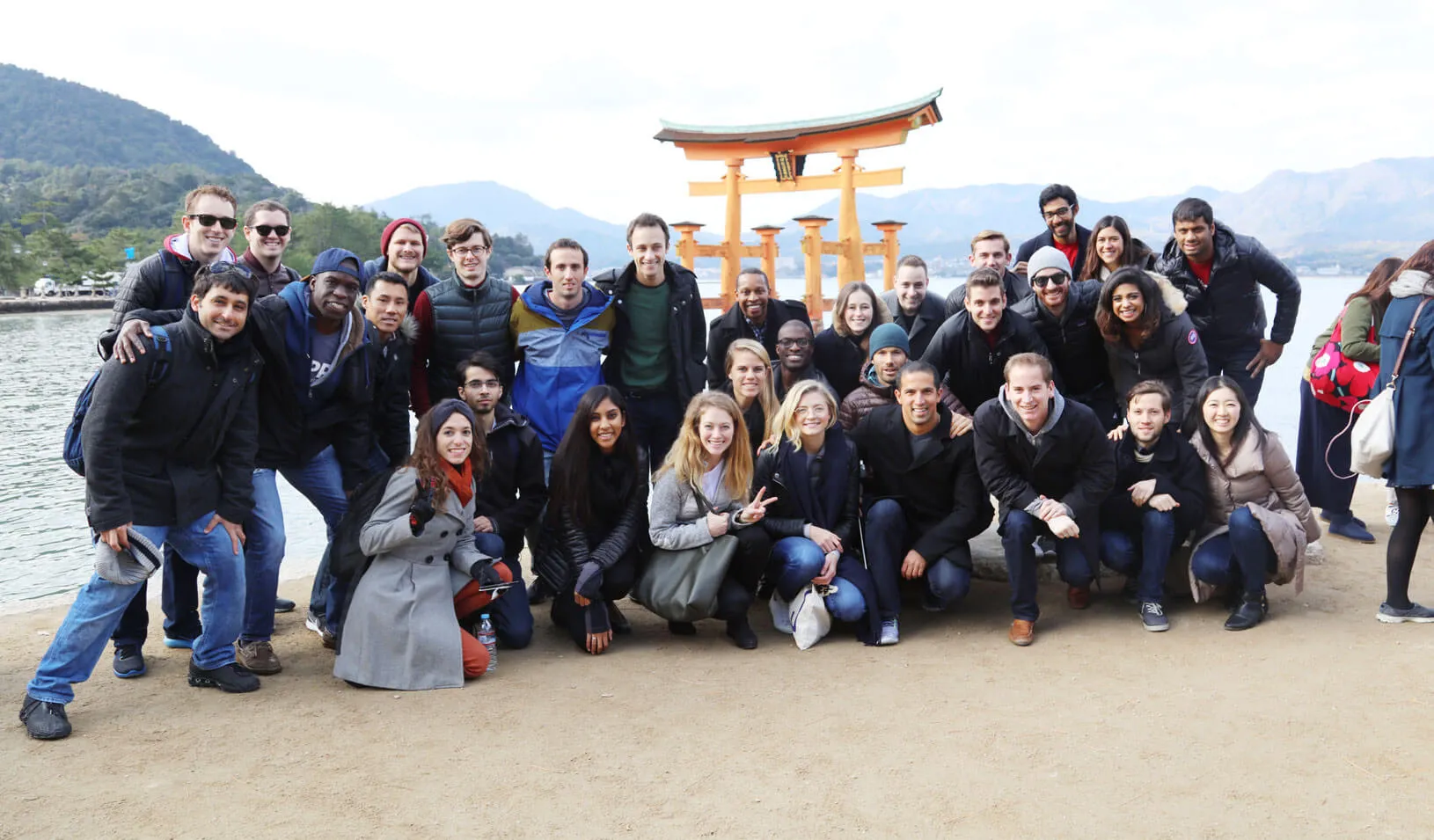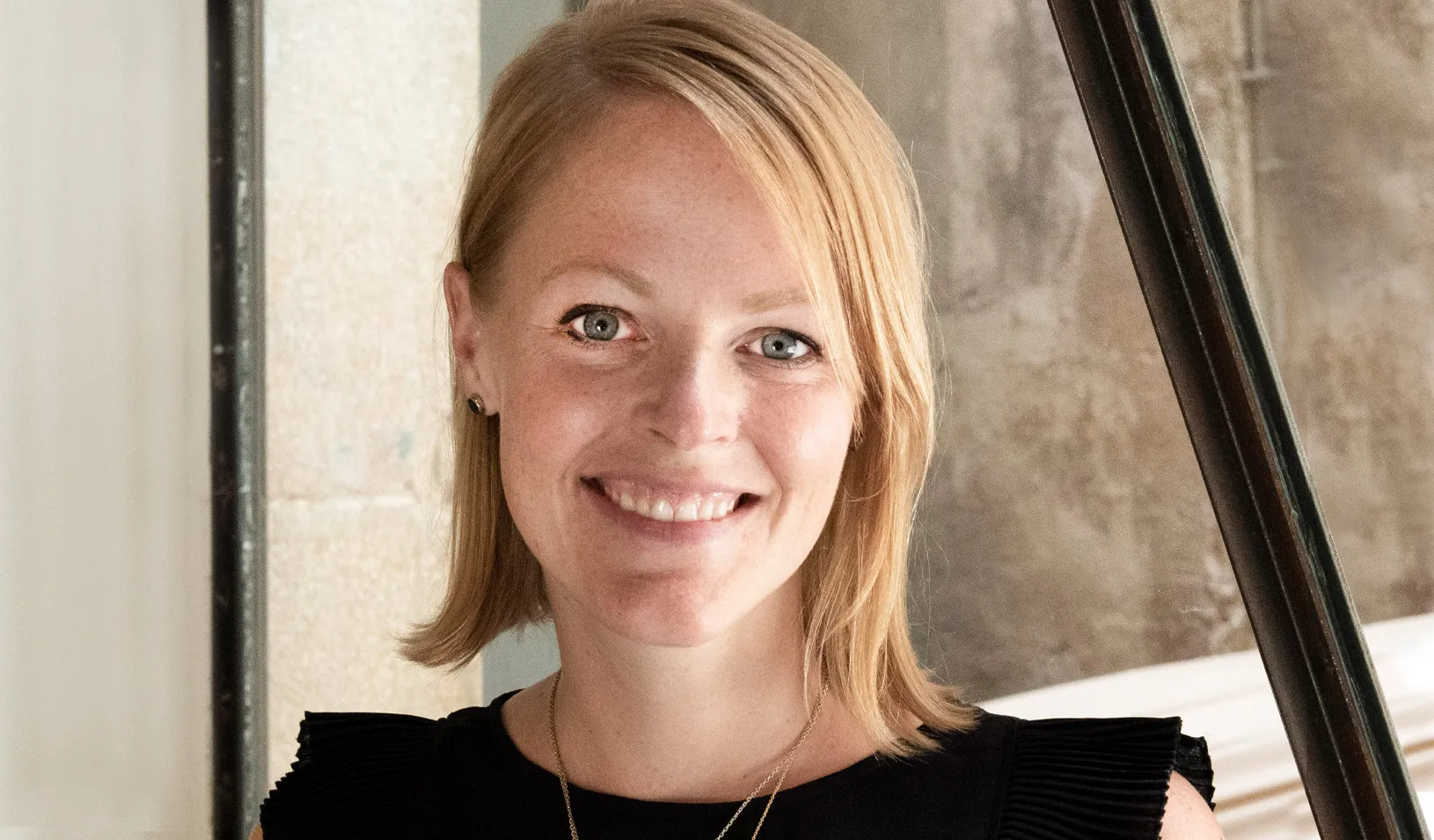A Global Study Trip Leader Discovers Her Homeland’s Unique Attitude Toward Business
For Eiko Nakano, MBA ’17, leading a study trip meant seeing her country — from its business perspective to its culture — through outsiders’ eyes.
September 25, 2017
Shibuya Crossing in Tokyo | Getty Images
After 20 years of economic stagnation, coupled with an aging population, can Japan grow again?
That was the theme for the Global Study Trip co-led by Eiko Nakano, MBA ’17, who was born and raised in Japan. Over the course of 10 days in early 2017, Nakano, her three co-leads, 22 student trip participants, one faculty member, and one faculty advisor traveled to Tokyo, Hiroshima, and Kyoto. They met with 13 business leaders from large and small companies as well as government officials — including Hidehiko Yuzaki, MBA ’95, the governor of Hiroshima — to learn how these key players are trying to fuel economic growth in the country.
But for Nakano, the biggest highlights of the trip were cultural insights that helped her understand her native country from outsiders’ perspectives.
“Japan’s culture is so different: the way we approach business, the way we communicate, the things we value, the history,” Nakano says.
The different value system became more palpable for the participants following a meeting with the CEO of one large Japanese company, who then made a point of handing each Stanford GSB student his business card. After a group photo with the management at another company, each student was presented with a print to take home. These small gestures that took time and care demonstrated how Japanese businesspeople often prize the personal touch — and prompted the students to wonder if such moments, multiplied over time and in larger contexts, have implications for slower domestic growth.
Indeed, Nakano found that many Japanese companies prioritize relationships while conducting business, even if that means lower profits. But beyond the matter of whether this factor is contributing to slower growth, there’s another issue: How much growth is necessary, especially for such a successful, post-industrialized country?
“You start to question if the American way of doing business is the only way of doing business, or if are there other values you can think about that are just as meaningful or effective. The emphasis on community was something I hadn’t seen in business before this trip,” Nakano says.
“As future leaders, what do we want to prioritize, and what do we think is more important?” she continues. “I think understanding different ways of thinking about business or life offers the possibility of becoming more effective and intentional leaders.”
Itsukushima Shinto Shrine | Khalid Naji
Nakano says that leading the trip was one of the best chances she’s had to apply some of the skills and lessons she’d learned about leadership back on Stanford GSB’s campus. While she found that logistics created constant challenges, the far greater one was managing her classmates.
“We faced little decisions every day,” she says. “If someone is late to a meeting, what do you say, and how does it affect the group dynamics? What are the conversations you have to have; how do you make the best judgment for your group?”
Nakano says she found that cultivating the team vibe was important — a factor that had been largely overlooked before the trip.
“We spent a lot of time planning and make sure the itinerary looked good,” she says. “But at the end of the day, it was all about the group dynamics that created either a good or bad experience.”
One of Nakano’s co-leads, Colton Heward-Mills, similarly found cultivating interpersonal relationships to be a vital aspect of leadership.
“As leaders, we realized that connecting with participants on a personal level made it much easier to achieve our more tactical goals for the trip,” he says. “Truly getting to know and understand each other builds trust, and that trust goes a long way when trying to convince a group of the importance of being on time, or to persuade a participant to try eating an odd-looking vegetable that he is not familiar with.”
Nakano found the experience of leading a trip invaluable as a means of not only actively trying out her leadership skills, but also learning more about her own country from a global business perspective.
“Even though I grew up in Japan, there were so many sides to Japan that I didn’t know,” Nakano says. “The planning considerations and the questions my classmates asked for this trip were really helpful and inspired me to think harder about what it means to be Japanese.”
About Global Study Trips
As part of Stanford GSB’s Global Experiences requirement, students can go on intensive eight- to 10-day trips to countries with which they are not familiar, to critically examine a challenging global business issue. These trips also provide leadership opportunities for the second-year MBA students who act as the management teams. Student leaders pitch the destination and theme; design an itinerary of locations, meetings, and cultural activities, carefully curated to help participants gain a nuanced understanding of the trip theme and central questions; and prepare pre-trip education sessions.
This series looks at the experiences of the Global Study Trip student leaders while tackling questions of economic growth, innovation, and business opportunity around the world, and reveals what they learned about management.
— Katharine Schwab
For media inquiries, visit the Newsroom.
Explore More
Erin Nixon Joins Stanford GSB as Assistant Dean of Admissions

Nia Rose Froome, MBA ’23: Making Local, Fresh Food Available for All

New Research Fund Promotes Responsible Leadership for the Next Century
